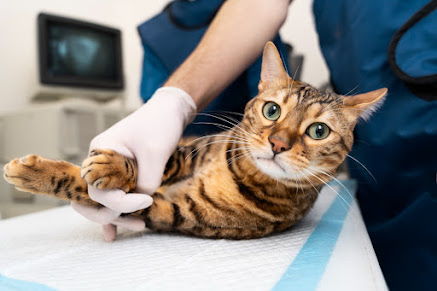Reasons Why Your Cat Suddenly Stopped Eating.
Cats are known for their selective appetites and occasional finicky eating habits. However, when a cat suddenly stops eating altogether, it can be a cause for concern. A loss of appetite in cats, known as anorexia, is not only a symptom of an underlying problem but can also lead to serious health issues if left unaddressed. In this article, we will delve into the various reasons why cats may stop eating and discuss potential solutions.
Illness or Pain:
One of the primary reasons why cats may lose their appetite is due to illness or pain. Cats are instinctively driven to hide signs of weakness or discomfort, making it difficult for pet owners to immediately identify the issue. Common health problems that can affect a cat's appetite include dental issues, gastrointestinal problems, urinary tract infections, kidney disease, liver disease, and respiratory infections. If your cat suddenly stops eating, it is crucial to consult a veterinarian to determine the underlying cause and initiate appropriate treatment.
Stress or Anxiety:
Cats are sensitive creatures that thrive on routine and familiarity. Any changes in their environment, such as moving to a new house, introduction of a new pet, or alterations in their daily routine, can cause stress and anxiety. These emotional disturbances can lead to a loss of appetite. It is important to create a calm and secure environment for your feline companion, provide them with their usual comforts, and give them time to adjust to any changes. In some cases, veterinarians may recommend behavior modification techniques or anti-anxiety medications to help alleviate stress-induced anorexia.
Environmental Factors:
Environmental factors can play a significant role in a cat's eating habits. Strong odors, such as from cleaning products or cooking, can deter a cat from eating. Additionally, dirty food bowls, a noisy feeding area, or a crowded space can also make cats feel uncomfortable and reluctant to eat. Ensuring a clean, quiet, and undisturbed feeding area can encourage your cat to eat.
Food Preferences and Texture:
Cats can be quite particular about their food preferences. They may refuse to eat certain flavors or textures, especially if they have had a negative experience with them in the past. It is essential to offer a variety of high-quality cat food options and observe your cat's preferences. If your cat consistently avoids a particular food, consult your veterinarian to explore other suitable options.
Dental Issues:
Dental problems are a common cause of appetite loss in cats. Painful gums, tooth decay, or broken teeth can make eating a painful experience for them. If you notice your cat drooling excessively, pawing at their mouth, or showing reluctance to chew, it is crucial to have their dental health evaluated by a veterinarian. Regular dental check-ups, professional cleanings, and appropriate dental care at home can help prevent dental issues that may lead to appetite loss.
Medication Side Effects:
Certain medications can affect a cat's appetite, causing temporary anorexia. If your cat has recently started a new medication, it is worth discussing with your veterinarian whether the loss of appetite could be a potential side effect. In some cases, alternative medications or adjustments to the dosage can be considered to mitigate these effects.
Age-related Changes:
As cats age, their metabolism slows down, and their nutritional needs may change. Older cats may experience a decreased sense of smell or taste, dental issues, or underlying medical conditions that can affect their appetite. It is crucial to monitor their eating habits closely and consult a veterinarian for appropriate dietary adjustments and health assessments.
In conclusion, a cat's loss of appetite can be attributed to various factors ranging from underlying illnesses, stress, and environmental factors to food preferences and age-related changes. Identifying the specific cause is crucial for initiating the appropriate treatment or intervention. If your cat stops eating or displays a significant decrease in appetite, it is best to consult a veterinarian promptly to determine the underlying cause and address it effectively. Remember, a healthy and balanced diet is essential for your cat's overall well-being and longevity.






